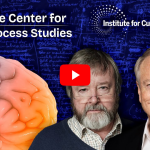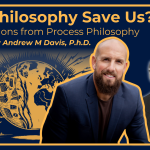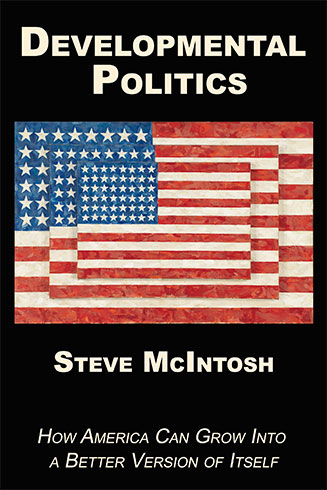Integral Consciousness
Chapter One Introduction
For those of us who have been on a spiritual path for a while, there often arises a strong desire to try to make a meaningful difference in the world around us. But this outwardly directed urge to service is often dampened when we remember Gandhi’s famous saying that “we must <i>become</i> the change we want to see in the world,” which inevitably leads back to the task of working on ourselves. Nevertheless, those who have managed to make a positive difference in the world (like Gandhi) have always intrigued me. I’ve always had a passionate interest in the times in history that were marked by dramatic advances. This led me to closely study these periods in which significant cultural evolution—improvement of the human condition—had occurred, searching for clues as to what had actually triggered and sustained this growth.
As I look back on it now, I can see that this interest in cultural evolution has been a major theme in my life; it has determined most of my life choices from an early age. Through my study of history, I initially concluded that <i>art</i> was one of the primary levers of social progress. Art had marked the advances of the Renaissance, and in my own lifetime, music had played a significant role in producing cultural evolution. Thus for a long time I concentrated on studying art movements and their role in changing the way people felt and thought about the world. But not only did I study the art movements of the past, I also tried to anticipate the art movements of the future. I experimented with new forms of art, I tried to discern the tenets of an emerging new aesthetic—I even started a company with the intention of participating in what seemed at the time to be a significant new art movement. Although this anticipated art movement has yet to fully materialize, these efforts weren’t in vain. The company is going strong. But more importantly, this search for the causes of cultural evolution led me to the discovery of a new way of seeing things best described as <i>integral philosophy</i>.
Integral philosophy is a new understanding of how the influences of evolution affect the development of consciousness and culture. Although aspects of it have been around for a long time, it’s only since the late 1990s that the essential elements of integral philosophy have been coming together into a coherent whole. The power of this new philosophy becomes self-evident to those who use it because it actually raises their consciousness. It’s a philosophy of evolution that literally causes evolution. This book, however, is not so much about a philosophy as it is about the results of this philosophy—the newly emerging worldview known as <i>integral consciousness</i>.
In this book I argue that a new, historically significant “level” of consciousness and culture is emerging in our time, and that the emergence of this new <i>integral worldview</i> is in many ways the evolutionary equivalent of the emergence of the <i>modernist worldview</i>during the period known as the Enlightenment of the 17th and 18th centuries. And just as the rise of modernism changed the world forever, we can expect similar (but more benign) progress from the rise of integralism. “Integral consciousness” is a new perspective on the world that expands our perception of reality and provides fresh motivation to make a positive difference. This new way of seeing and living arises from an enlarged set of values framed by an expanded understanding of cultural evolution.
As we will come to see, when we participate in integral consciousness, when we make meaning from the perspective of the integral worldview and adopt its values, we become endowed with the power to make significant progress in the improvement of both our selves and conditions in our world. Integral consciousness thus promises to produce exactly the kind of evolution that the world needs most. As we consider what form a successful future might take, we begin to realize that without some kind of positive cultural evolution, the future of humanity looks pretty bleak. However, as I will argue in the pages ahead, history shows that cultural evolution has indeed occurred in the past, and the same forces that caused evolution then can thus be reasonably expected to continue into the future. And now with integral philosophy we are provided with a clearer view of how future cultural evolution is likely to unfold and how we can participate in it directly.
Integral philosophy has emerged out of the various efforts of 20th century thinkers to fashion a new philosophy that comes to terms with the staggering facts of evolution itself. Among these philosophers of evolution, two of the most significant are Pierre Teilhard de Chardin (1881-1955) and Alfred North Whitehead (1861-1947). However, despite the enduring contributions of Teilhard and Whitehead, integral philosophy is much more than just a contemporary understanding of these great thinkers. Because these philosophers worked in the first half of the 20th century, they were not informed by the more recent insights of systems science and developmental psychology (nor were they informed by each other). Moreover, although the work of Teilhard and Whitehead was far ahead of its time, it came before the significant cultural evolution produced by the emergence of <i>postmodernism</i>. The word “postmodern,” of course, is a battleground of meaning. But I use this term to describe the overall stage of cultural evolution that has arisen in the last fifty years as an alternative to modernism (which I also define and describe in the pages ahead). As we will see, integral philosophy could not have appeared in its current form before now; its power rests on a host of important insights and developments that have only recently emerged. Today, the most significant proponent of integral philosophy is Ken Wilber, but important contributions are also being made by others, including Don Beck. A summary of the ideas of these writers, together with an overview of the broader lineage of integral philosophy, is found in chapter 7 entitled: <i>The Founders of Integral Philosophy</i>.
/snip/





